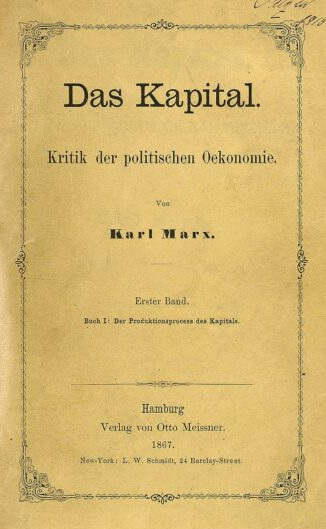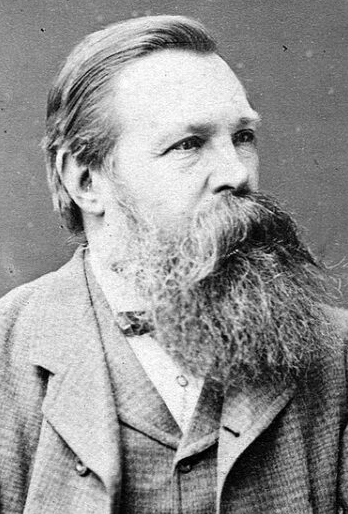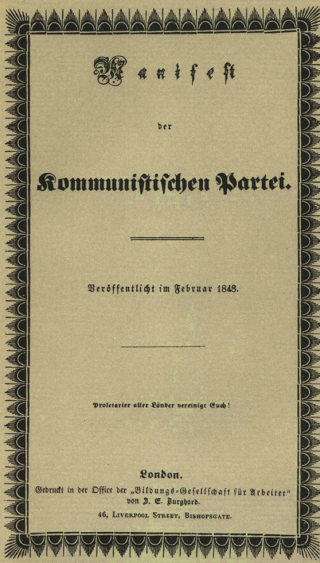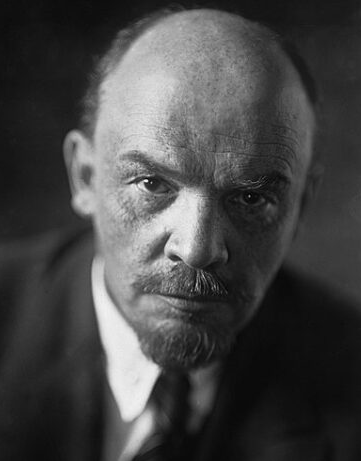マルクス「革命の巨星」理想と闘争の生涯 『共産党宣言』『資本論』

Marx: “Revolutionary Icon” – Idealism and a Lifetime of Struggle in “The Communist Manifesto” and “Das Kapital”
イントロダクション
カール・マルクスは、ドイツの哲学者、経済学者、社会主義革命家です。
また、哲学、経済学、政治学、歴史学、文学、社会学など、幅広い分野に影響を与えた思想家でもあります。
マルクスの思想は、主に「唯物史観」と「階級闘争論」に基づいています。
唯物史観とは、歴史の変化は物質的条件によって決定されるという考え方です。
階級闘争論とは、社会は階級対立によって動かされているという考え方です。
マルクスの主著は『資本論』、『共産党宣言』です。
Introduction
Karl Marx was a German philosopher, economist, and socialist revolutionary.
He was also a prolific thinker who influenced a wide range of fields including philosophy, economics, political science, history, literature, and sociology.
Marx’s ideas are primarily based on historical materialism and the theory of class struggle.
Historical materialism posits that historical change is determined by material conditions.
The theory of class struggle argues that society is driven by conflicts between social classes.
Marx’s major works include “Das Kapital” and “The Communist Manifesto”.

資本論の表紙(1867年発行)
Capital: Critique of Political Economy
Cover of Capital (Published in 1867)
『資本論』は、資本主義の経済構造を分析した書籍です。
マルクスは、『資本論』において、資本主義は必然的に崩壊し、社会主義に移行すると主張しました。
マルクスの思想は、20世紀に多くの国で社会主義革命を起こすきっかけとなりました。
また、マルクスの思想は、現代社会の政治、経済、思想にも大きな影響を与えています。
マルクスの思想は、非常に複雑で難解です。
しかし、マルクスの思想は、世界を理解する上で重要な視点を提供するものです。
マルクスの思想を理解することは、現代社会を理解する上で不可欠です。
“Capital” is a book that analyzes the economic structure of capitalism.
In “Capital,” Marx argues that capitalism will inevitably collapse and transition to socialism.
Marx’s ideas sparked socialist revolutions in many countries in the 20th century.
Furthermore, Marx’s ideas have had a profound impact on politics, economics, and thought in modern society.
Marx’s philosophy is highly complex and intricate.
However, understanding Marx’s philosophy provides important perspectives for comprehending the world.
Understanding Marx’s philosophy is essential for understanding contemporary society.
マルクスの略歴
マルクスは1818年5月5日にドイツのトリーアで生まれました。
父親はユダヤ人の家系でしたが、プロイセンの法律によりキリスト教に改宗しました。
マルクスはボン大学とベルリン大学で法学と哲学を学びました。
彼は若い頃から急進主義的な思想に傾倒し、ヘーゲル哲学の影響を受けました。
1842年にはライン新聞の編集者となり、社会問題や政治問題に関する記事を執筆しました。
しかし、彼の批判的な姿勢は当局の反感を買い、新聞は閉鎖されました。
Biography of Marx
Karl Marx was born on May 5, 1818, in Trier, Germany.
His father came from a Jewish lineage but converted to Christianity under Prussian law.
Marx studied law and philosophy at the University of Bonn and later at the University of Berlin.
From a young age, he leaned towards radical ideas and was influenced by Hegelian philosophy.
In 1842, he became an editor for the Rheinische Zeitung, writing articles on social and political issues.
However, his critical stance drew the ire of the authorities, leading to the newspaper’s closure.

Here is the English translation:
Friedrich Engels (November 28, 1820 – August 5, 1895)
その後、マルクスはパリに移り、そこでフリードリヒ・エンゲルスと出会いました。
二人は親友となり、共産主義運動の指導者として活動しました。
1848年には『共産党宣言』を発表し、資本主義社会の矛盾と階級闘争を分析しました。
その後もマルクスはロンドンに移りながら、多くの著作を残しました。
彼の最も有名な著作は『資本論』であり、そこで彼は労働価値説や剰余価値説などを展開しました。
マルクスは1883年3月14日にロンドンで亡くなりました。
ベルリン大学:革命の場へ
マルクスは、1836年にベルリン大学に入学しました。
彼は法学と哲学を学び、ヘーゲルの弟子たちと交流しました。
しかし、彼はヘーゲルの思想に批判的な立場をとり、若ヘーゲル派と呼ばれる急進的なグループに参加しました。
彼はこのグループの中で、フリードリヒ・エンゲルスやブルーノ・バウアーなどの友人を得ました。
彼らは、宗教や国家や財産などの既存の制度に反対し、人間の自由と平等を求める社会革命を目指しました。
マルクスは、この時期に自分の思想の基礎を築きました。
「人間解放」、そして共産主義へ
マルクスは資本主義社会における労働者の抑圧と不平等に対する批判を行いました。
彼は資本主義の下で労働者は労働力を売る一方で、生産手段や生産物の所有権を持たず、これによって経済的に不平等な状態が生じていると指摘しました。
彼はこの不平等な状態を克服し、人間の本当の解放を実現するために、共産主義社会の到来が必要だと考えました。
Subsequent Events: Meeting Engels and Leading the Communist Movement
Afterward, Marx moved to Paris where he met Friedrich Engels. The two became close friends and worked together as leaders in the communist movement. In 1848, they published the “Communist Manifesto,” analyzing the contradictions of capitalist society and class struggles. Marx later moved to London and continued to produce numerous works. His most famous work, “Das Kapital” (Capital), elaborated on concepts such as the labor theory of value and surplus value. Marx passed away on March 14, 1883, in London.
University of Berlin: A Stage for Revolution
Marx enrolled at the University of Berlin in 1836, where he studied law and philosophy and engaged with Hegel’s disciples. However, he adopted a critical stance towards Hegelian philosophy and joined the radical group known as the Young Hegelians. During this time, he befriended figures like Friedrich Engels and Bruno Bauer. They opposed existing institutions such as religion, state, and property, advocating for social revolution to achieve human freedom and equality. It was during this period that Marx laid the foundations of his own ideology.
Human Liberation and the Road to Communism
Marx critiqued the oppression and inequality of workers under capitalist society. He pointed out that under capitalism, workers sold their labor power without owning the means of production or the products they produced, resulting in economic inequality. Marx believed that overcoming this inequality and achieving true human liberation required the advent of a communist society.

出版された『共産党宣言』表紙
Here is the translation:
February 1848, London: Cover of “The Communist Manifesto”
『共産党宣言』とは
マルクスとフリードリヒ・エンゲルスによって書かれた『共産党宣言』は、共産主義の基本的な原則や思想を示した文書です。
この宣言は1848年に発表され、共産主義運動の基盤となりました。『共産党宣言』は、社会主義と共産主義の基本的な原則を明確に表現した文書であり、資本主義の批判と共産主義の理念を広める役割を果たしました。
宣言の原則と思想は後の共産主義運動や社会主義運動に大きな影響を与え、多くの国でその思想が受け入れられ、実践される運動の基盤となりました。
『共産党宣言』の経緯
1847年、ロンドンで開催された共産主義者同盟の第二回大会で、マルクスとフリードリヒ・エンゲルスは、同盟の綱領として共産党宣言の起草を委託されました。
彼らは当時のヨーロッパの社会的・政治的・経済的な状況を分析し、資本主義の発展とそれに伴う階級闘争の激化を指摘しました。
また、彼らはプロレタリアート(労働者階級)が歴史の主体として革命を起こし、ブルジョワジー(資本家階級)を打倒し、共産主義社会を建設することを主張しました。
『共産党宣言』は1848年2月にドイツ語で出版され、その後さまざまな言語に翻訳され、世界中に広まりました。『共産党宣言』は19世紀から20世紀にかけての社会主義運動や労働運動に大きな影響を与え、現代においても資本主義批判や社会変革の理論として参照されています。
『共産党宣言』の内容
『共産党宣言』は、以下の四つの章から構成されています。
第一章「ブルジョアジーとプロレタリア」
第二章「プロレタリアと共産主義者」
第三章「社会主義的・共産主義的文献」
第四章「共産党人の態度」
第一章では、資本主義社会におけるブルジョアジーとプロレタリアとの対立と闘争を分析し、ブルジョアジーが自らの墓掘りをすることと、プロレタリアが歴史的使命を果たすことを主張しています。
第二章では、共産主義者の目的や立場、運動方針などを説明し、共産主義者がプロレタリアの最も進歩的な部分であり、全人類の解放を目指すことを強調しています。
第三章では、さまざまな社会主義や共産主義の思想や運動に対する批判や区別を行っています。
第四章では、当時のヨーロッパ各国の政治状況に応じて、共産党人がどのような態度や行動を取るべきかを示しています。
The Communist Manifesto
Written by Karl Marx and Friedrich Engels, “The Communist Manifesto” is a foundational document outlining the basic principles and ideas of communism.
Published in 1848, this manifesto laid the groundwork for the communist movement. It articulates fundamental principles of socialism and communism, playing a critical role in critiquing capitalism and promoting communist ideals.
The principles and ideas outlined in the manifesto had a profound impact on subsequent communist and socialist movements worldwide, serving as the basis for movements that were accepted and practiced in many countries.
Background of “The Communist Manifesto”
In 1847, at the Second Congress of the Communist League held in London, Karl Marx and Friedrich Engels were commissioned to draft “The Communist Manifesto” as the programmatic statement of the League.
They analyzed the social, political, and economic conditions of Europe at the time, highlighting the development of capitalism and the intensification of class struggle.
Moreover, they argued that the proletariat (working-class) would lead revolutions as the main agents of history, overthrowing the bourgeoisie (capitalist class), and establishing a communist society.
“The Communist Manifesto” was published in German in February 1848 and subsequently translated into various languages, spreading globally. It greatly influenced socialist and labor movements from the 19th to the 20th century and continues to be referenced today as a theory of critique against capitalism and for social transformation.
Contents of “The Communist Manifesto”
“The Communist Manifesto” consists of four chapters:
- Bourgeoisie and Proletariat
- Proletarians and Communists
- Socialist and Communist Literature
- Position of the Communists in Relation to the Various Existing Opposition Parties
Chapter one analyzes the conflict and struggle between the bourgeoisie and the proletariat in capitalist society, asserting that the bourgeoisie digs its own grave while the proletariat fulfills its historical mission.
Chapter two explains the objectives, positions, and strategies of communists, emphasizing that communists represent the most progressive part of the proletariat and aim for the liberation of all humanity.
Chapter three criticizes and distinguishes various socialist and communist ideologies and movements.
Chapter four outlines the attitudes and actions communists should take in response to the political situations in various European countries at that time.
「マルクス主義」とは
マルクス主義とは、マルクスとフリードリヒ・エンゲルスによって提唱された社会主義思想です。
マルクス主義は、資本主義社会の矛盾を分析し、労働者階級による革命によって資本主義社会を打倒し、共産主義社会を実現することを主張しています。
マルクス主義の理論的基礎は、マルクスとエンゲルスの著作である『共産党宣言』『資本論』などです。
『共産党宣言』では、マルクスとエンゲルスは、資本主義社会は必然的にプロレタリアートの革命によって崩壊し、プロレタリアート独裁が樹立されると主張しました。
『資本論』では、マルクスは、資本主義社会の矛盾を分析し、労働者が資本家から搾取されていることを論証しました。
マルクス主義は、20世紀にソビエト連邦の成立や中国の社会主義革命など、世界各地で大きな影響を与えました。
しかし、マルクス主義は、独裁政治や経済的失敗など、多くの問題も生み出しました。
現在では、マルクス主義は、世界中で様々な形で議論されています。
エンゲルス『空想から科学へ』
エンゲルスの『空想から科学へ』は、1880年に出版された社会主義に関する論文です。
この論文では、エンゲルスは、空想的社会主義と科学的社会主義の違いを論じています。
空想的社会主義とは、理論的根拠に欠け、実現可能性の低い社会主義です。
例えば、トマス・モアやウィリアム・モリスなどの空想的社会主義者は、理想的な社会を描いた小説やエッセイを書いたものの、その実現に向けて具体的な行動を起こすことはしませんでした。
一方、科学的社会主義とは、マルクス主義に基づいた社会主義です。
マルクス主義は、社会主義を実現するための理論的根拠を体系的に示した思想です。
エンゲルスは、マルクス主義を科学的社会主義と呼びました。
エンゲルスは、空想的社会主義は実現不可能であると批判しました。
そして、科学的社会主義こそが、社会主義を実現するための唯一の道であると主張しました。
『空想から科学へ』は、マルクス主義の入門書として広く読まれ、社会主義の理論的基礎を学ぶための重要な文献となっています。
レーニン『マルクス主義の三つの源泉と三つの構成部分』
What is Marxism?
Marxism is a socialist ideology advocated by Karl Marx and Friedrich Engels. It analyzes the contradictions of capitalist society and advocates for the overthrow of capitalism through revolution by the working class, aiming to achieve a communist society.
The theoretical foundation of Marxism lies in works such as “The Communist Manifesto” and “Capital” by Marx and Engels.
In “The Communist Manifesto,” Marx and Engels argued that capitalist society would inevitably collapse through proletarian revolution, leading to proletarian dictatorship.
In “Capital,” Marx analyzed the contradictions of capitalist society and demonstrated how workers are exploited by capitalists.
Marxism had a significant impact globally in the 20th century, influencing events such as the establishment of the Soviet Union and the socialist revolution in China. However, it also brought about many problems, including authoritarianism and economic failures.
Today, Marxism continues to be debated in various forms worldwide.
Engels’ “Socialism: From Utopia to Science”
Engels’ “Socialism: From Utopia to Science,” published in 1880, is an essay on socialism.
In this work, Engels discusses the difference between utopian socialism and scientific socialism.
Utopian socialism lacks theoretical basis and feasibility for realization. Figures like Thomas More and William Morris painted idealistic visions of society in novels and essays but did not take concrete actions towards achieving them.
On the other hand, scientific socialism, based on Marxism, provides a systematic theoretical basis for realizing socialism.
Engels termed Marxism as scientific socialism and criticized utopian socialism as unachievable. He argued that scientific socialism was the only viable path towards achieving socialism.
“Socialism: From Utopia to Science” is widely read as an introductory text to Marxism, serving as an important document for studying the theoretical foundations of socialism.
Lenin’s “Three Sources and Three Component Parts of Marxism”

1920年のレーニン
Vladimir Ilyich Lenin (April 22, 1870 – January 21, 1924)
Lenin in 1920
レーニンの『マルクス主義の三つの源泉と三つの構成部分』は、1913年に発表された著作です。
この著作の中で、レーニンは、マルクス主義の理論的基礎は、ドイツ古典哲学、イギリス古典政治経済学、フランス社会主義に由来していると主張しています。
ドイツ古典哲学からは、唯物論と弁証法の思想がマルクス主義に継承されました。
イギリス古典政治経済学からは、剰余価値学説がマルクス主義に継承されました。
フランス社会主義からは、階級闘争の思想がマルクス主義に継承されました。
レーニンは、マルクス主義は、これらの三つの源泉から生まれた「科学的社会主義」であると主張しました。
また、レーニンは、マルクス主義は、現実の社会問題を解決するための理論であり、革命の理論であると主張しました。
『マルクス主義の三つの源泉と三つの構成部分』は、マルクス主義の入門書として広く読まれ、社会主義の理論的基礎を学ぶための重要な文献となっています。
Lenin’s “Three Sources and Three Component Parts of Marxism” (1913)
Lenin’s work, “Three Sources and Three Component Parts of Marxism,” published in 1913, argues that the theoretical foundation of Marxism derives from three main sources: German classical philosophy, British classical political economy, and French socialism.
From German classical philosophy, Marxism inherits the ideas of materialism and dialectics.
From British classical political economy, Marxism inherits the theory of surplus value.
From French socialism, Marxism inherits the concept of class struggle.
Lenin contends that Marxism, born from these three sources, constitutes “scientific socialism.”
He further asserts that Marxism is both a theory to solve real social problems and a theory of revolution.
“Three Sources and Three Component Parts of Marxism” is widely regarded as an introductory text to Marxism, essential for understanding the theoretical foundations of socialism.
マルクスの影響を受けた人物と思想
カール・マルクスの影響を受けた人物と思想について考えてみましょう。
マルクスの思想は、多くの人々に大きな影響を与えました。
その中でも特に重要な人物と思想を紹介します。
まず、フリードリヒ・エンゲルスはマルクスの共同著作者であり、親友でもありました。
彼らは共に「共産党宣言」を執筆し、共産主義の理論を広めました。
エンゲルスはマルクスの死後も彼の遺産を守り、彼の思想を発展させました。
次に、ウラジーミル・レーニンはロシア革命の指導者であり、マルクス主義の理論を実践しました。
彼はマルクスの思想を基に、労働者階級の解放と社会主義の実現を目指しました。
また、ローザ・ルクセンブルクはポーランド出身の社会主義者で、マルクス主義の理論を発展させました。
彼女は労働者の権利と平等を求め、戦争に反対する活動を行いました。
さらに、アントニオ・グラムシはイタリアの共産主義者で、マルクス主義の理論を応用しました。
彼は文化的なヘゲモニーの概念を提唱し、支配層による支配を解体するための戦略を提案しました。
以上が、カール・マルクスの影響を受けた人物と思想の一部です。
彼らはマルクスの思想を受け継ぎ、それを発展させることで社会変革を目指しました。
Figures and Ideas Influenced by Karl Marx
Let’s explore figures and ideas influenced by Karl Marx’s thought.
Marx’s ideas have profoundly impacted many individuals.
Here are some particularly significant figures and their ideas:
Firstly, Friedrich Engels was Marx’s collaborator and close friend. Together, they authored the “Communist Manifesto” and propagated communist theory. Engels safeguarded Marx’s legacy after his death and further developed his ideas.
Next, Vladimir Lenin emerged as a leader of the Russian Revolution, implementing Marxist theory. He aimed to liberate the working class and achieve socialism based on Marx’s ideas.
Rosa Luxemburg, born in Poland, advanced Marxist theory. She advocated for workers’ rights, equality, and conducted anti-war activities.
Antonio Gramsci, an Italian communist, applied Marxist theory. He introduced the concept of cultural hegemony and proposed strategies to dismantle ruling-class domination.
These individuals represent some of those influenced by Karl Marx’s ideas. They inherited and developed Marx’s thought to pursue social change.
マルクスの現代的意義
マルクスの思想は、現代において重要な影響を持っています。
以下に、マルクスの現代的な意義のいくつかの側面を説明します。
・社会的不平等と格差の批判 : マルクスは資本主義社会における階級間の不平等と格差に対する批判を提起しました。
現代の社会でも、富の不均衡や経済的不平等が依然として存在しており、彼の思想はこれらの問題に対する議論の一翼を担っています。
/
・労働者の権利と労働条件の改善:マルクスは労働者階級の搾取に注目し、労働者の権利と労働条件の改善を主張しました。
現代でも労働者の権利、労働条件、最低賃金などの問題が議論されており、マルクスの考え方はその背景に影響を与えています。
・資本主義批判と持続可能な経済 : マルクスは資本主義の内在的な矛盾と環境への影響を指摘しました。
現代の持続可能な経済モデルや環境問題への取り組みにおいて、彼の思想が参考にされることがあります。
・文化とイデオロギーの影響 : マルクスは「イデオロギーは支配階級の意識である」という観点を持ち、文化やメディアが支配構造を維持する手段となる可能性を指摘しました。
現代の文化研究やメディア批評において、彼の洞察が活用されています。
・国際的な視点とグローバル化 : マルクスは国際的な階級闘争と共産主義の普及を提唱しました。
現代のグローバル化の中で、異なる国々や地域での経済的・社会的課題に対するアプローチとして、彼の視点が参考にされることがあります。
The Contemporary Significance of Marx
Marx’s ideas continue to exert significant influence in the contemporary world.
Below are several aspects of Marx’s modern relevance explained:
- Critique of Social Inequality and Disparities: Marx raised criticisms against class inequality and disparities in capitalist societies. Today, discussions on issues such as wealth imbalance and economic inequality still echo his thoughts.
- Advocacy for Workers’ Rights and Labor Conditions Improvement: Marx focused on the exploitation of the working class and advocated for their rights and better labor conditions. Modern debates on issues like workers’ rights, labor conditions, and minimum wages are influenced by Marx’s perspectives.
- Critique of Capitalism and Sustainable Economics: Marx highlighted the inherent contradictions of capitalism and its impact on the environment. His ideas are sometimes referenced in discussions about sustainable economic models and environmental issues today.
- Influence of Culture and Ideology: Marx viewed ideology as the consciousness of the ruling class and suggested that culture and media could uphold dominant structures. His insights are utilized in contemporary cultural studies and media critiques.
- International Perspective and Globalization: Marx advocated for international class struggle and the spread of communism. In the context of modern globalization, his viewpoints provide insights into approaches to economic and social challenges across different countries and regions.

Warning: Undefined variable $comment_form_sns_tags in /home/ktsky/philosophy-kayak.com/public_html/wp-content/themes/shaper/comments.php on line 27